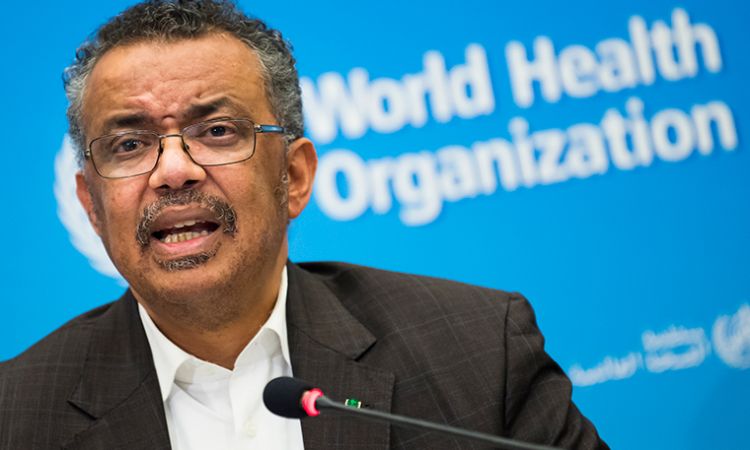Australia/Israel Review
Deconstruction Zone: The shortcomings of the UN’s WHO exposed
May 4, 2020 | Ricki Hollander

The World Health Organisation (WHO), the United Nations agency responsible for international health under the helm of Director-General Tedros Adhanom Ghebreyesus, has been increasingly criticised for playing politics by allowing China to downplay and conceal information about the novel coronavirus outbreak in that country; for refusing to declare COVID-19 a global emergency from the get-go; and for opposing travel bans from China.
An April 15 Wall Street Journal editorial points out that the coronavirus epidemic “has exposed the [WHO’s] process for declaring emergencies as prone to politicisation…” But this was not the first time that the WHO director-general has been criticised for allowing political considerations to influence him to cover up epidemics and human rights abuses.
Much the same can be said of the WHO’s politicisation of healthcare in the West Bank and Gaza.
Israel is one of the WHO’s 194 member states and belongs to the European region. The West Bank and Gaza belong to the Eastern Mediterranean region, made up of largely Arab and Muslim countries. The only non-state included in the Eastern Mediterranean region is the West Bank and Gaza Strip, referred to by the WHO as “Palestine”.
WHO’s Eastern Mediterranean division is overtly partisan: its literature consistently refers to the disputed land of the West Bank and Gaza as “Occupied Palestinian Territories” and, along with its reports, include incendiary propaganda claims, with the WHO imprimatur.
The WHO’s political and sectarian approach to healthcare in the West Bank and Gaza is made clear in its “Country Cooperation Strategy for WHO and the Occupied Palestinian Territory 2017–2020” (CCS) – the document that sets out its strategic vision in establishing health policies, strategies and plans for Palestinian healthcare development efforts.
Shortcomings in healthcare delivery to Palestinians are blamed on Israel, with no acknowledgement of the role of the Palestinian leadership – neither Hamas nor the Palestinian Authority (PA) – in the conflict itself, or in the decisions it makes that compromise healthcare delivery.
Similarly, the WHO’s most recent report on Palestinian health care, “Right to Health”, published at the end of 2017, was crafted to blame Israel for limitations in Palestinian access to healthcare.
According to the executive summary, the report, “focuses on two major issues: access restrictions for patients, companions and health staff – specifically due to Israel’s permit regime – and health attacks affecting patients, companions, health workers and health facilities.”
While noting that the PA and Hamas have responsibilities for providing appropriate healthcare to their people, the WHO report lays the blame for Palestinian healthcare problems squarely on Israel:
“Israel as occupying power has the primary responsibility for ensuring the right to the highest attainable standard of health for the Palestinian population…”
What is missing from both the CCS and report on Palestinian healthcare is the context of Israel’s complete withdrawal from the Gaza Strip and its takeover by Hamas.
There is no discussion about the effect of Palestinian terrorism that impacts the delivery of healthcare, nor of the decisions by the leadership – the Palestinian Authority (PA) that runs the West Bank, and Hamas, the terrorist group that runs Gaza – that have an impact on the delivery of healthcare. There is, for example, nothing about the subverting of medical ambulances by terrorists, Hamas’ rejection of essential medical supplies from Israel, or the diversion of resources by Hamas to benefit its terrorist infrastructure; and nothing about the reduction of essential services and halting of medical shipments by the PA to Gaza resulting from the internecine fighting between the PA and Hamas.
Like its reliance on the Chinese Communist Government as a source of information on the coronavirus outbreak, the WHO relies on Gaza’s Health Ministry officials as a source of information. These officials are employees of Hamas, a terrorist regime sworn to Israel’s destruction.
Were the WHO really interested in improving Palestinian healthcare, it would examine all the factors involved in regulating healthcare.
It has taken a global pandemic to shed light on the fact that the United Nation’s World Health Organisation is not the politically neutral organisation it was meant to be – not in China nor in the Middle East.
Ricki Hollander is a senior media analyst at CAMERA, the Committee for Accuracy in Middle East Reporting and Analysis. © CAMERA (www.camera.org), reprinted by permission, all rights reserved.
Tags: Gaza, Israel, NGOs, Palestinians, United Nations, WHO






